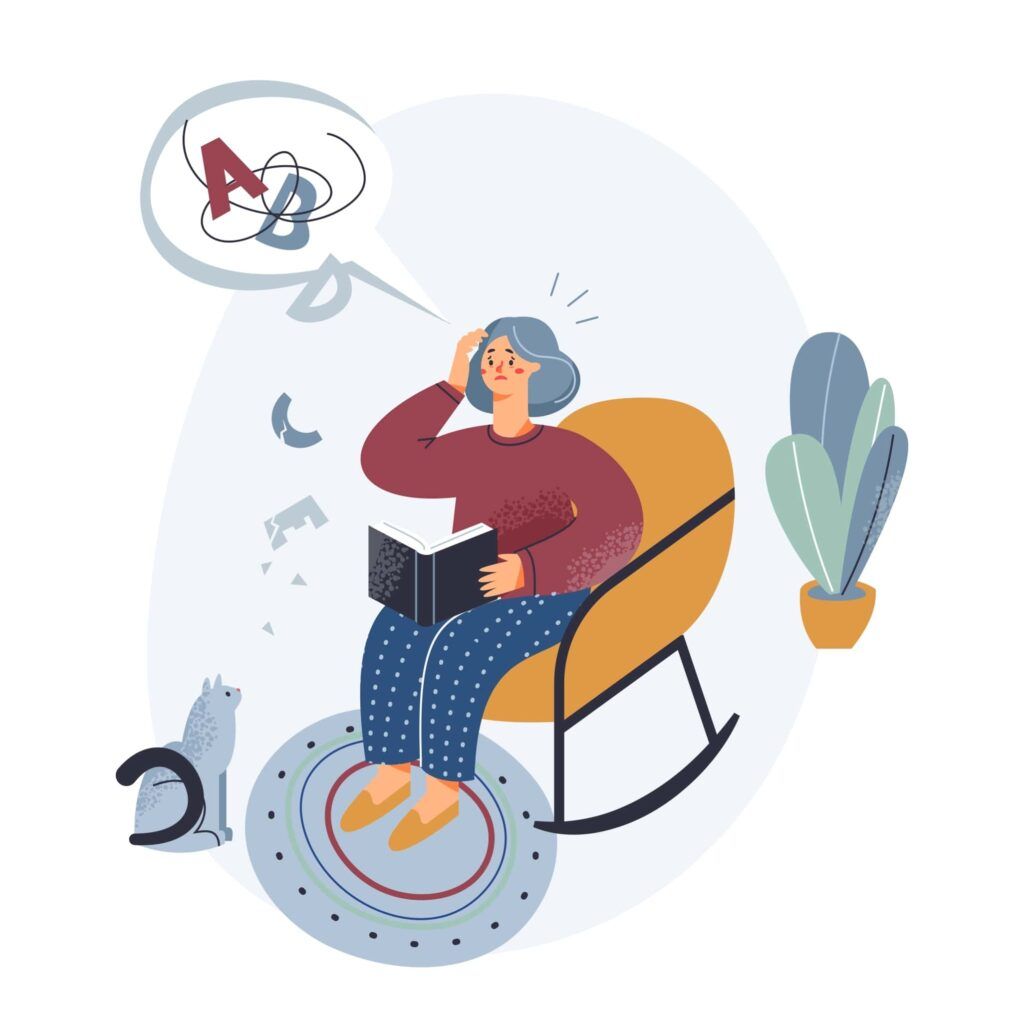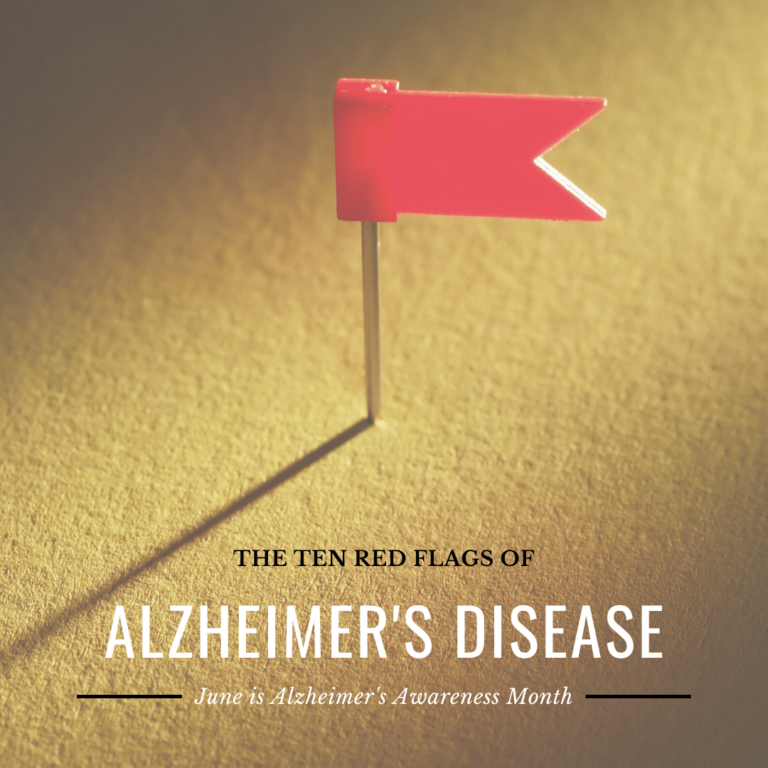In honor of Alzheimer’s Awareness Month this June, we want to share with you the top 10 warning signs of this devastating disease. Alzheimer’s disease is a progressive form of dementia that affects more than 5 million Americans and is the sixth leading cause of death in the United States. The good news is that there are ways to detect Alzheimer’s early on, and there are treatments available that can help improve the quality of life for those living with the disease. There are also various other benefits of detecting Alzheimer’s early on. If you suspect Alzheimer’s here are ten red flags to watch out for:
Memory Loss:
One of the most common and earliest symptoms of Alzheimer’s is memory loss. This can manifest in a number of ways, such as forgetting recent events, conversations, or appointments. You may also find yourself asking the same question over and over again, or being overly reliant on memory aids to remind you what to do as the day goes on.
Problems with Problem Solving:

Another early symptom of Alzheimer’s disease is difficulty with problem solving. This can manifest as simple things, such as forgetting how to use the microwave, to more complex issues like not being able to follow a recipe or balance your checkbook. Oftentimes, issues with problem solving tend to involve numbers or detailed tasks with multiple steps.
Difficulty with Familiar Tasks:
If you find yourself struggling to complete familiar tasks that you’ve been doing for years, it could be a sign of Alzheimer’s. This can include things like having trouble driving to a familiar place or forgetting how to brush your teeth. You may also notice that you forget how to complete a specific project for work or cook a dish you’ve been making for years.
Confusion Regarding Time or Place:
One of the more disorienting symptoms of Alzheimer’s is confusion about time and place. You may find yourself getting lost in familiar places or you may forget where you are entirely. It is also common that you can become easily disoriented. In addition to struggling with place, you may also struggle with time. For example, not knowing what day it is or not being able to comprehend an event happening at a later time. In some cases, you may also lose track of dates or events.
Trouble with Visual Relationships:
Alzheimer’s can also affect how you perceive visual information and spatial relations. For example, you may find yourself becoming “clumsier” than usual. This can include bumping into things, tripping or falling more, losing your balance, or even spilling things more often. All of these things can indicate that you are having trouble perceiving spatial relations. Additionally, you may also find that you are having trouble reading or distinguishing certain colors.

Problems with Words:
Another common symptom of Alzheimer’s disease is difficulty with words. This can manifest as trouble naming objects, finding the right word to describe something, or struggling to have a conversation. You may also start repeating yourself or may simply stop talking in the middle of a conversation because you don’t know what else to say. In some cases, you may also notice that you have a harder time with writing as well.
Frequently Misplacing Things:
If you find yourself misplacing things more often than usual, it could be a sign of Alzheimer’s. This includes putting things in strange places, like putting your keys in the freezer, or your wallet in the oven. You may also find that you are unable to retrace your steps when it comes to locating an object you have misplaced. Because of this, you may also accuse others of taking your things.
Poor Judgment:
One of the more insidious symptoms of Alzheimer’s is poor judgment. This can manifest in a number of ways, such as giving away large sums of money, not paying bills on time, or neglecting personal hygiene. You may also dress inappropriately for the weather or have trouble taking care of yourself or others.
Social Withdrawal:
Alzheimer’s disease can also lead to social withdrawal. You may find yourself not wanting to go out and socialize like you used to or you may stop participating in activities that you once enjoyed. Part of this may be due to the fact that you have trouble following things you once enjoyed. You may also feel a lack of motivation to do the things you once loved.
Mood or Personality Changes:
Finally, one of the more heartbreaking symptoms of Alzheimer’s is mood or personality changes. This can manifest as depression, anxiety, irritability, suspicion, or apathy. You may also find yourself acting out of character. Oftentimes, it is your family or close friends that may notice these changes in you, and it can be hard to hear.
In Conclusion
In this blog, we’ve listed the top ten red flags of Alzheimer’s disease. If you or a loved one are experiencing any of these symptoms, we recommend talking to a doctor. Early detection is key to getting the best possible treatment and quality of life for those living with Alzheimer’s. Thanks for reading and we hope this was helpful. If you have any specific questions about Alzheimer’s or wish to set up a screening test, call our office today!

Dr. Kashouty, a diplomate of the American Board of Psychiatry and Neurology (ABPN), practices general neurology with fellowship trained specialization in clinical neurophysiology. Dr. Kashouty finds the form and function of the nerves and muscles the most interesting part of neurology, which is what led him to specialize in neurophysiology with more emphasis on neuromuscular conditions. He treats all neurological diseases, but his main focus is to treat and manage headaches, movement disorders and neuromuscular diseases.




